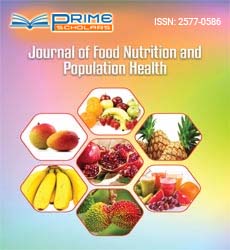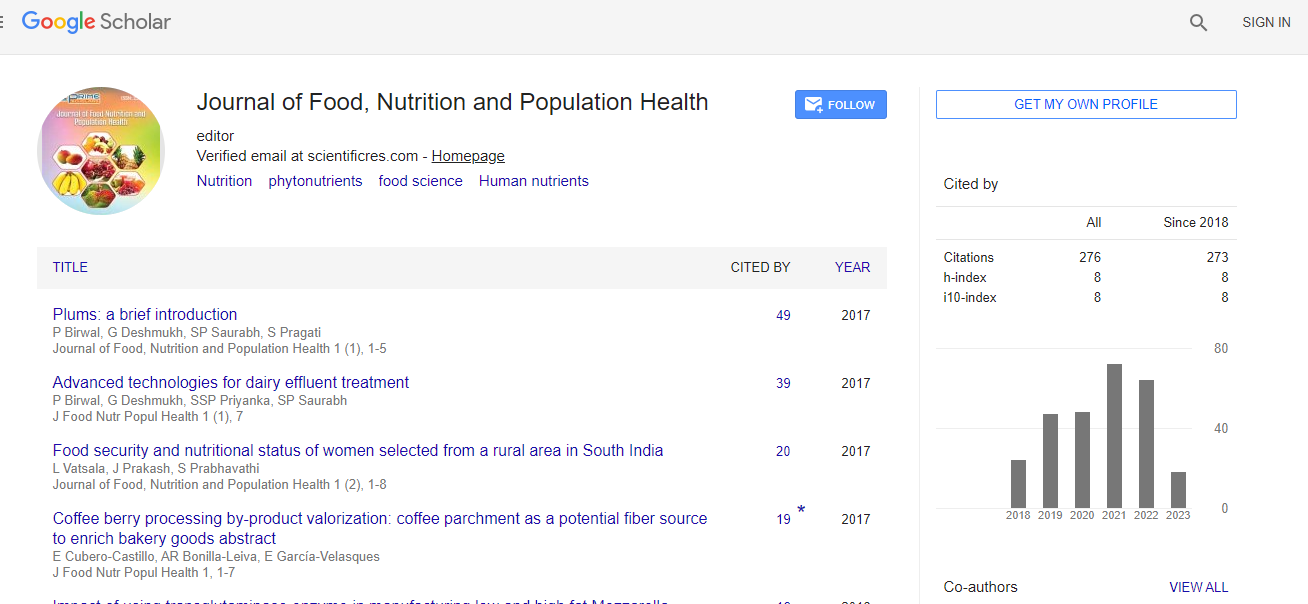Mruthyunjayaswamya*
Department of Chemistry, Vijaya College, RV Road, Basavanagudi, Bengaluru-560 004, India
- *Corresponding Author:
- Mruthyunjayaswamya
Department of Chemistry, Vijaya College, RV Road, Basavanagudi, Bengaluru-560 004, India
E-mail: Mrswamya@gmail.com
Received Date: September 13, 2021; Accepted Date: September 17, 2021; Published Date: September 24, 2021
Citation: Mruthyunjayaswamya (2021) Reducing Sugar in Pre Packed Foods will Forestall Wellness in Millions. J Food Nutr Popul Health. Vol.5 No.9:75
Editorial
Cutting 2 hundredth of sugar from pre packed foods and fourhundredth from beverages may forestall two.48 million disorder events (such as strokes, heart attacks, internal organ arrests), 490,000 vessel deaths, and 750,000 polygenic disease cases within the U.S. over the time period of the adult population, per micro-simulation study printed in Circulation. A team of researchers from Massachusetts General Hospital (MGH), the Milton Friedman college of Nutrition Science & Policy at Tufts University, Harvard T.H. Chan college of Public Health and big apple town Department of Health and psychological medicine (NYC DOH) created a model to simulate and quantify the health, economic, and equity impacts of a realistic sugar-reduction policy planned by the U.S. National Salt and Sugar Reduction Initiative (NSSRI). A partnership of quite one hundred native, state and national health organizations convened by the NYC UT, the NSSRI discharged draft sugar-reduction targets for preplaced foods and beverages in fifteen classes in 2018. This Gregorian calendar month, NSSRI finalized the policy with the goal of trade voluntarily committing to step by step develop their honed product. Implementing a national policy, however, would force government support to observe firms as they work toward the targets and to publically report on their progress. The researchers hope their model can build accord on the necessity for a nationalsugar reformulation policy within the North American country. "We hope that this study can facilitate push the reformulation initiative forward within the next few years," says Siyi Shang guan, MD, MPH, lead author and attending medical practitioner at MGH. "Reducing the sugar content of commercially ready foods and beverages can have a bigger impact on the health of American citizens than alternative initiatives to chop sugar, like imposing a sugar tax, labeling other sugar content, or forbidding honed drinks in colleges." Ten years when the NSSRI policy goes into result, the U.S. may expect to avoid wasting $4.28 billion in total internet attention prices, and $118.04 billion over the time period of the present adult population (ages thirty five to 79), per the model. Adding the social group prices of lost productivity of American citizens developing diseases from excessive sugar consumption, the overall value savings of the NSSRI policy rises to $160.88 billion over the adult population's time period. These edges are probably to be an understatement since the calculations were conservative. The study conjointly incontestable that even partial trade compliance with the policy may generate important health and economic gains. The researchers found that the NSSRI policy became efficient at six years and cost-saving at 9 years. The policy may conjointly cut back disparities, with the best calculable health gains among Black and Hispanic adults, and Americans with lower financial gain and fewer educations populations that consume the foremost sugar as a historical consequence of unjust systems. Product reformulation efforts are shown to achieve success in reducing alternative harmful nutrients, like Tran’s fats and atomic number 11. The U.S., however, lags alternative countries in implementing sturdy sugar-reduction policies, with countries like the United Kingdom, Norway, and Singapore taking the lead on sugar-reformulation efforts. The North American country could nonetheless become a frontrunner in protective its folks from the risks of excessive sugar consumption if the NSSRI's planned sugar-reduction targets are achieved. "The NSSRI policy is far and away the foremost rigorously designed and comprehensive, nonetheless doable, sugar-reformulation initiative within the world," says Shang guan. intense honed foods and beverages is powerfully coupled to fat and diseases like sort two polygenic disease and disorder, the leading reason for mortality within the U.S. quite 2 in 5 yank adults are corpulent, one in 2 have polygenic disease or prediabetes, and nearly one in 2 have disorder, with those from lower-income teams being disproportionately burdened.

